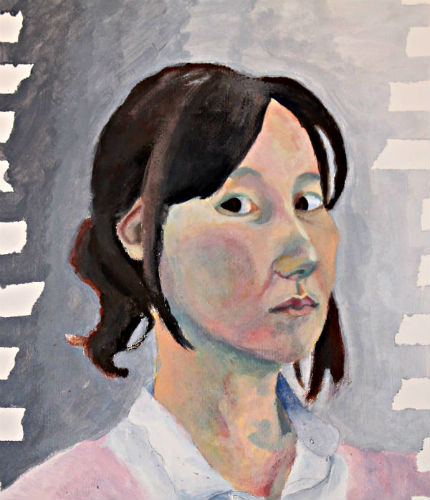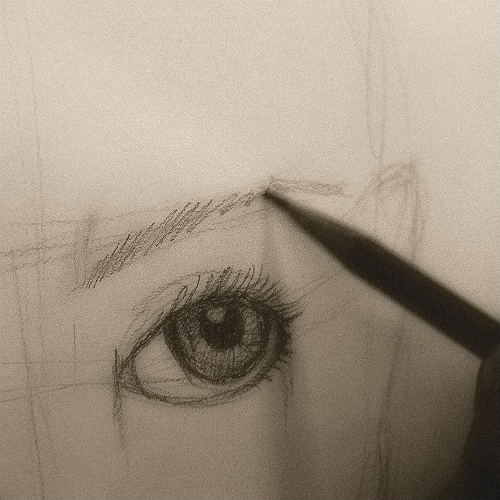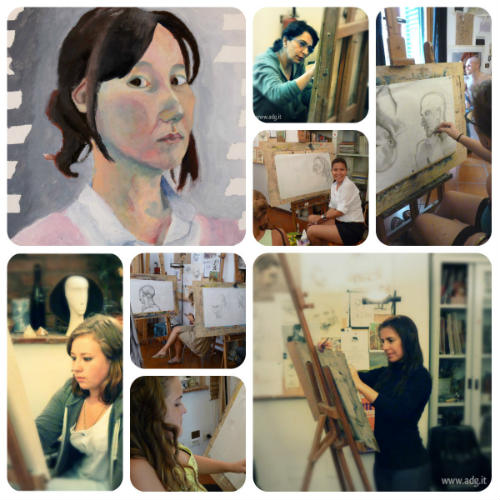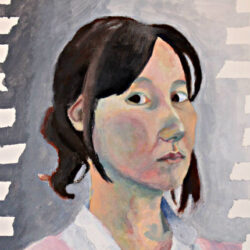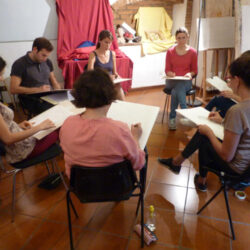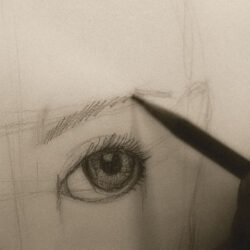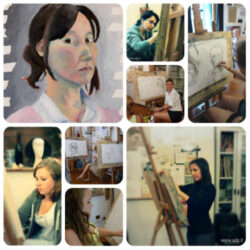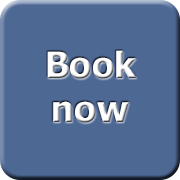The comprehensive Art course is structured into nine units (A through I) and spans nine months. However, students are welcome to enroll in specific units or parts of units, with a minimum duration of one week. Courses typically commence on any Monday. The teacher will evaluate the students’ skills at the beginning of each unit and help them to establish their objectives. Each unit lasts 4 weeks, for a total amount of 56 hours, inclusive of 8 hours of living models. The first units introduce foundation studies in drawing and painting techniques while the following units aim at developing and improving students artistic skills. At the end of these nine units students will have acquired the basic knowledge required towards the making of their personal portfolios and will concentrate on the study of one specific technique. At the end of these nine units students will have acquired the basic knowledge required towards the making of their personal portfolios and concentrate on the study of one specific technique. Price and details 1 week, 14 hours €335 1 week, 14 hours €375 1 week, 20 hours €375 1 week, 20 hours €420 The programme Basic drawing techniques (A). An introduction to the basic drawing techniques and practices (line, design, light and shadow or “chiaroscuro” as the Italians say) through which students will learn how to place and reproduce an object on paper, according to its natural shape and proportions. Students will practice mainly with graphite and charcoal. No specific artistic skills or background are required. Basic Drawing Techniques (B) This unit includes the acquisition of notions of anatomy and the methodology traditionally used to draw bodies and faces. Students will learn the shading and blending technique, they will be taught how to gauge the dimensions of a subject while sketching it in the drawing as well as how to render the texture of a drawing, by also using the hatching and stippling technique. Part of the course can be dedicated to the approach of line drawing. Students will be able to practice the following media: sanguine, pen-and-ink, pastel crayon, Conté, silver point. Drawing from life (C) In-depth study of the skills acquired in the first two units, especially the “chiaroscuro” technique, including the basics of shading and perspective. Students will also approach the study of the “écorché* technique, through which they will learn to draw a figure or a part of a body that shows the muscles without skin. This technique was practiced for the first time in Florence during the Renaissance period by those masters who wanted to study the human figure. Classes may take place also in the squares of Florence so as to sketch some famous statues. Drawing from life (D) With a focus on both figure and portraiture this unit deals with visual understanding by direct observation of the human body and it concentrates on the methodology used to draw bodies and faces. On every session students will draw from either female or male models posing in the nude. Quick poses will aim at teaching the sketch technique while longer poses will intend to develop the study of anatomy and of shades as well as the student’s observation abilities. Basic Painting Techniques (E) This unit focuses on the rudiments of the colour theory and the practice of various techniques, such as acrylic, watercolor and pastel painting. Students will learn how: Basic Painting Techniques (F) In-depth study of the skills acquired in unit E, from mastering color mixing and palette organization to preparing mediums, especially the watercolor and the acrylic techniques. Students will also be taught how to emphasize or fade the brightness of the colours of different objects and the effects of light on metal, glass, etc. Part of the programme can be dedicated to the study of a particular subject, such as still life, portrait, life painting, townscape or landscape. Advanced Painting Techniques (G) An approach to some traditional painting techniques, i.e. oil and tempera, including an introduction to their history and applications. During the course participants can opt for the study of various advanced techniques such as the “écorché” technique (with various drawing and painting media) and the glaze painting technique. The latter one is mainly used with oil colors and it is considered one the most ancient techniques. Students will learn how to spread thin semi-transparent layers of paint over an opaque completely dried painting. The glaze technique is ideal for the rendering of details such as the the complexities of skin tones. Advanced Painting Techniques (H) Students will be given the opportunity to: Towards the making of a Personal Portfolio An in-depth study of one or more media which every student will choose to take up and engage in. Students will search for a personal style by focusing on a particular subject or technique that they particularly like or that they consider as challenging and inspiring for their artistic vocation. Part of the course can be dedicated to the syudy of the fundamentals of sculpture techniques with clay.Art from 1 week to 9 months
All of our teachers are highly qualified and experts in the various disciplines and techniques such as classical drawing, oil painting, watercolour, sculpture with clay and fresco.
The lessons are integrated with conversations on art history. In order to ensure the highest quality of tuition, the number of students will not exceed 10 per group.
Please note
Prices 14 hours per week
Without art materials
2 weeks, 28 hours €585
3 weeks, 42 hours €845
1 unit, 4 weeks, 56 hours €895
2 units, 8 weeks, 112 hours €1635
3 units, 12 weeks, 168 hours €2355
6 units, 24 weeks, 336 hours €4565
9 units, 36 weeks, 504 hours €6705With art materials
2 weeks, 28 hours €655
3 weeks, 42 hours €945
1 unit, 4 weeks, 56 hours €1025
2 units, 8 weeks, 112 hours €1895
3 units, 12 weeks, 168 hours €2745Prices 20 hours per week
Without art materials
2 weeks, 40 hours €655
3 weeks, 60 hours €895
1 unit, 4 weeks, 80 hours €1175
2 units, 8 weeks, 160 hours €2115
3 units, 12 weeks, 240 hours €3135
6 units, 24 weeks, 480 hours €6025
9 units, 36 weeks, 720 hours €9015With art materials
2 weeks, 40 hours €735
3 weeks, 60 hours €1010
1 unit, 4 weeks, 80 hours €1315
2 units, 8 weeks, 160 hours €2395
3 units, 12 weeks, 240 hours €3555Course price includes
Unit A
Unit B
Unit D
Unit D
Unit E
Unit F
Unit G
Unit H
Unit I
Contact us
Testimonials
While studying at our academy, you are free to focus on the art techniques you are most interested in or wish to improve. The “9 units” represent a general learning framework, not fixed modules that run separately or on a weekly rotation.
Because our classes are small (usually 8–10 students), teaching is highly personalized. Even if you attend for just one or two weeks, you will not be restricted to a single unit. Instead, instructors select and combine material from multiple units to best suit your level and objectives.
Our art instructors work closely with each student to design a tailored program based on individual skills, experience, and interests. You may choose the media you want to work with and the subjects you wish to explore, and your instructor will structure the week accordingly.
I spend 2 incredible months at Accademia del Giglio! I started at a total basic level and ended not only with a lot of new techniques and skill, but also with a much bigger love for art than I had imagined.
(more…)
Andrea P.Denmark

